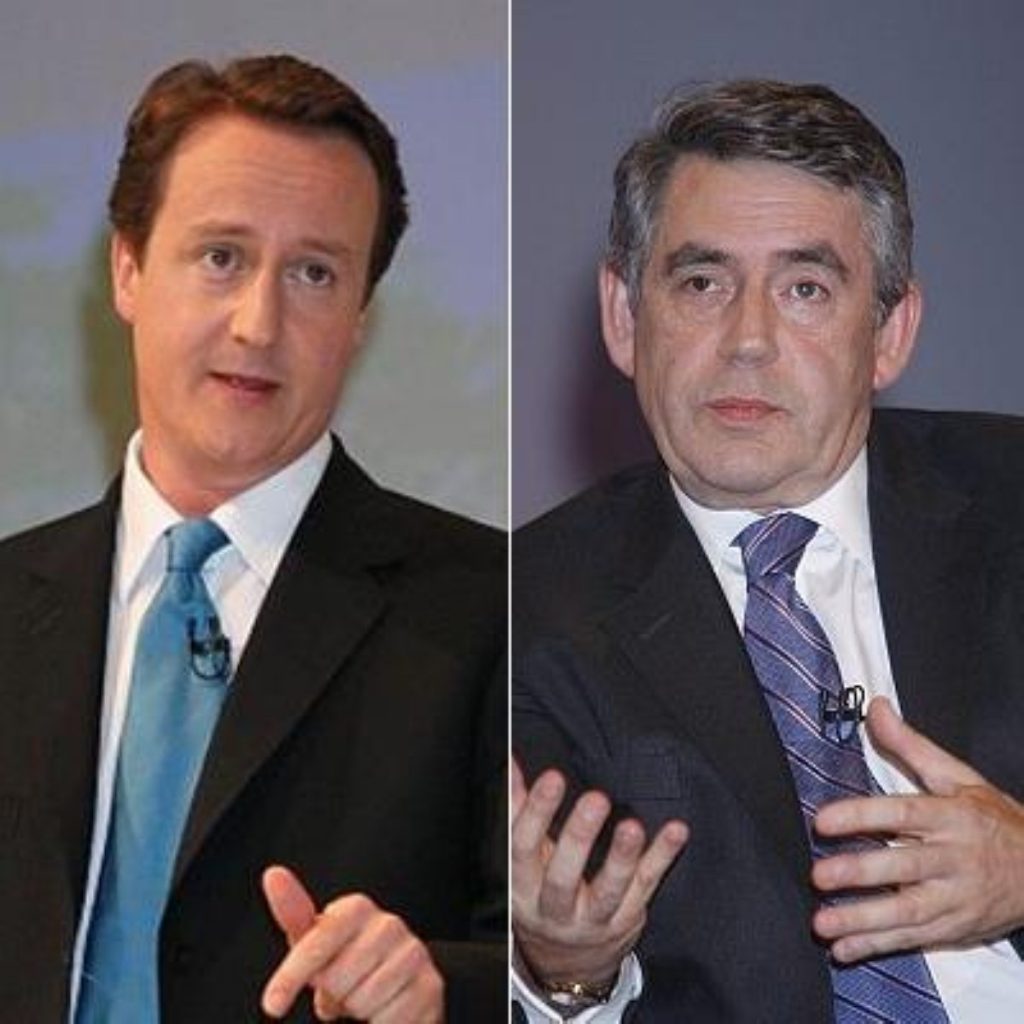PMQs as it happened
Welcome to politics.co.uk’s As-It-Happens page. Here you can keep up to date with major parliamentary debates, press conferences or news events in real time. Just hit refresh on your browser to see the latest development.
This event is now over, but you can see how it happened below.
The House of Commons is waiting for this week’s PMQs to start.
Mr Brown fills the House in on his ministerial engagements, including his proposal to bring in witness anonymity next week. It really won’t be as easy as that, despite the fact he probably has cross-party backing.


Mr Brown actually looks surprisingly chipper. Maybe it’s because he’s nearly made it through one year in power. Harriet Harman, to his right, looks stern – really terribly stern. Jack Straw, as ever, looks like headmaster.
The PM announces economic sanctions against Zimbabwe and the banning of the cricket team.
David Cameron leads on Zimbabwe, the issue of the moment.
Will the PM push for a declaration that all states present at the G8 summit will denounce Zimbabwe and its farcical election, he asks.
Mr Brown says hope lies in the number of African leaders refusing to support Mugabe’s regime. He wants to work with the African Union and the UN.
Cameron says he supports all of this – he often says something like that before he begins tearing bits out of the prime minister.
Talk turns to legitimacy of the regime. When the PM says that, what does he actually mean, Cameron asks.
“We do not recognise the legitimacy of the government,” Mr Brown replies, but he doesn’t explain the relevance of that in practical rather than legal terms.
Mr Cameron wants a full visa ban on Mugabe, his officals and family. He says businesses and individuals who have dealings with Zimbabwe need to look at themselves and their actions.
Mr Brown says there probably will be a travel ban on Mugabe’s familiy, his officials, and his officials’ families.
The PM treads carefully on the economic sanctions issue, subtly mentioning that, yes, it probably will hurt the poor there even more. But he says the UK will offer material help for development once democracy returns to the country.
Lib Dem leader Nick Clegg says: “Before he became prime minister I think people thought he was a man of principle.”
He’s calling on Brown to recieve the medals of Ghurkas who are handing them in in protest at the immigration system imposed on them.
Mr Brown says he values their contribution to the country. He says serving Ghurkas have access to army pension scheme, but no mention of immigration – the main issue. “We are trying to honour our obligation,” he says.
Mr Clegg point out that Mr Brown has just reeled off a list of policies without addressing the question. They deserve citizenship, Mr Clegg argues.
Mr Brown does mention a settlement and naturalisation option for those serving, although it’s unclear how far that satisfies Mr Clegg’s point.
Camerons back, and this time he’ll probably be nastier.
Will the PM rule out any changes that would weaken previous Tory anti-union laws, he asks.
It’s rare for Cameron to come from so firm a right-wing position. Mr Brown does a pretty good job of making the Tories look uncertain on public sector pay.
Mr Cameron is performing surprisingly badly. Why is Mr Brown going ahead with the Warwick 2 process, he asks, where unions and government dicuss policy? It’s a strange point – one thing does not necessarily lead to the other. Gordon Brown says as much.
“You said you needed more time to set out your vision. You’ve had a year,” Mr Cameron says.
Cameron quotes Tony Blair’s anti-union views. He’s matching Labour’s financial need for the unions with a supposed leftward drift in the party.
“New Labour is dead and buried,” he says.
Much happiness from the Tory benches, and Gordon does his usual attack. “For him politics is just showbusiness. You can get by without substance some of the time, you can’t get by without substance all of the time,” he says.
Labour love it, actually, and it’s well delivered. It helps that Cameron’s point is hard to agree with. You’d have to be a hell of a lot further to the right than Cameron is to say Brown is taking Labour leftwards.
Today was one of the first draws between the two for some time. If one was feeling generous, which we rarely are, one would say Brown might even have won that one.
There’s a certain satisfaction, during dull questions, to watching the strange expressions of the front bench. John Hutton, for example, has the kind of bags under his eyes which suggest he was just recently raised from the grave.
Alistair Darling has the look of a naughty schoolchild to him. Perhaps because he’s about to stand up and try to explain exactly how the government managed to lose the data of millions of British families.
Someone asks a question on gaming machines in seaside resorts. Absurdly, Mr Brown stands there and reels off government policy on the issue. Just how many policies does he have in those notes of his and, under anyone’s criteria, in his highly capable brain?
Was Mr Brown’s first year in office Casino Royal or Temple of Doom, a Tory asks. Both leaders were asked who they prefer earlier this week. Neither of them really gave a proper answer, but anyone that doubts Mr Cameron prefers James Bond can’t be paying proper attention.









